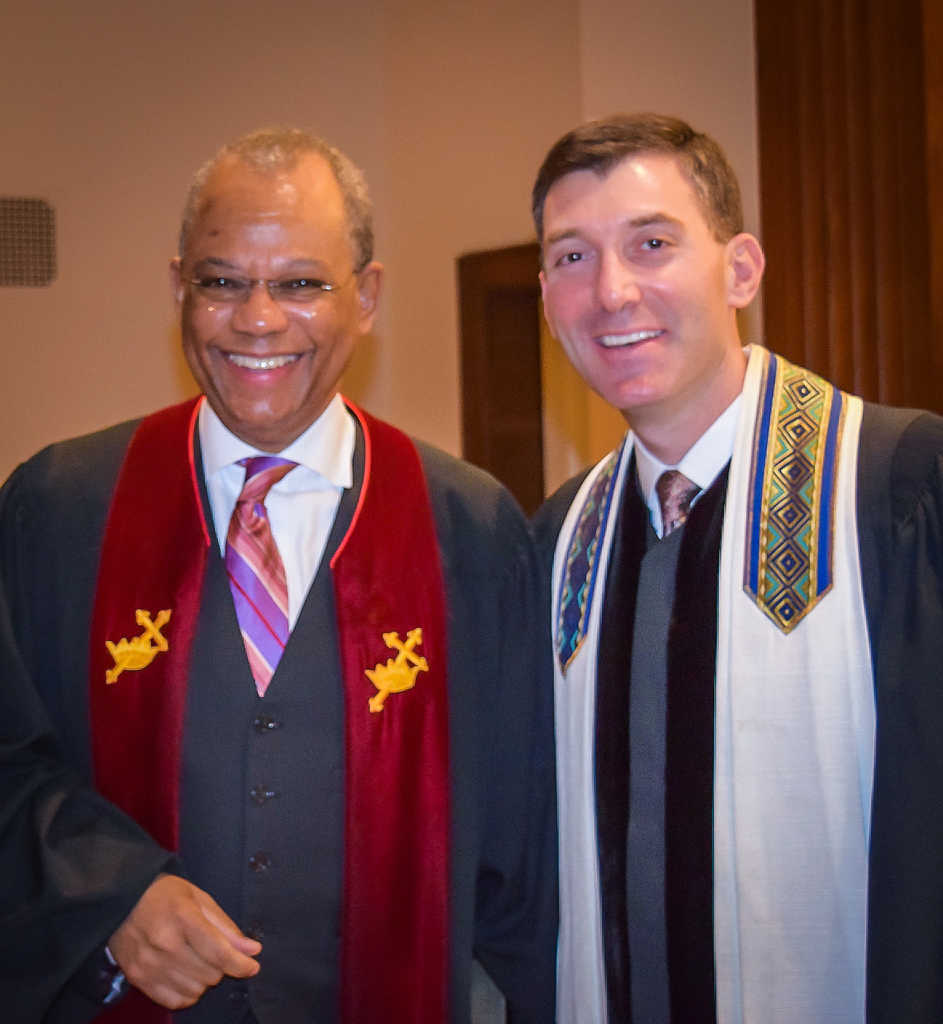As the pews begin to fill up with congregants this past Friday evening at the Fifth Avenue Temple Emanu-El, home to many reformed Jewish New York residents, there is a feeling of unity in the air.
The Temple members are joined with those from the historical black church, Abyssinian Baptist Church located in Harlem, New York.
The two groups have been brought together for a Sabbath worship service to commemorate Martin Luther King, Jr.

Senior Rabbi of Temple Emanu-El, Joshua Davidson told Faithwire that this annual event between the two religious homes is an opportunity to “build a bridge between (different communities) who don’t normally interact in ways that allow them to speak about their deepest concerns.”
It is also an opportunity that “religious institutions, specifically houses of worship are uniquely positioned to (have).”

The congregants from both institutions trickle in to catch a seat close to the stage.
The early arrivals even got a glimpse and chance to listen to the Harlem based church choir rehearse songs that were important to the peaceful protests lead by Dr. Martin Luther King over 50 years ago.
The meaningful lyrics from musical pieces like “We Shall Overcome” were sung by the Jewish and Christian choirs. While many in the crowd listened, Faithwire spoke with Eveyln Neal, a member of the Harlem based church.
Neal has been a member for 18 years and a Harlem resident for much longer. She explained that her favorite part of the service every year is when the choir and Upper East side Temple members sing together in Yiddish.

By the beginning of the 6 p.m. interfaith service, nearly 700 people have come to celebrate and give thanks for Dr. King.
After the opening words and prayers are said by the Rabbi and his fellow team, Reverend Calvin O. Butts of Abyssinian takes the stage.
A man that Rabbi Davidson notes he respects and values because of what he adds to the New York community.
Butts’s sermon touches upon religious, political and racial unity as well as references to famous Christian ministers like Mr. Rogers from the childhood PBS series: “Mister Rogers’ Neighborhood.”
Mr. Fred McFeely Rogers, as shared in Butts’ message, was an ordained Presbyterian minister who, much like himself, wanted to stir people up to adhere to the values of MLK.
According to Rabbi Davidson, these words, philosophies and intentions set forth by these men of history are shared in Jewish tradition.

“Both faith traditions share certain common values and common aspirations for society,” he explains. “When you meet other people around the table…in prayer with them you hear about their own hopes and dreams and concerns and fears…and you come to recognize just how much you share.”
“I think that African-Americans and Jews because of parallel historical narratives (like) slavery and oppression share so much in common,” he continued. “King looked at the Israelites exodus from slavery as a paradigm for the struggle of the black community in America. The Jewish community was deeply involved in the Civil Rights movement,” and that means days like this one are important.
The kinship between the two is “a relationship which goes back generations…its important to bring that relationship and all the strength that can be found in it forward so we can work together to address the problems of today.”
Rabbi Davidson explained:
“The overall goal can’t be just once a year getting together to celebrate Martin Luther King day as important as that is. We in the Jewish community look at Martin Luther King as a modern prophet who spoke with the force of Micah and Isaiah and observing his birthday is by itself an important ritual. However if it is only about that ritual observance then we are really failing to heed King’s message, Micah’s message and Isaiah’s message. We have to work together to address the challenges of the world as we perceive them.”
An idea that Davidson conveyed during his Abyssinian church message two days later.
“No community can solve society’s problems alone. We are so much stronger when we work together and so many ways blacks and Jews come from a common set of experiences. Not identical clearly but we share that narrative that begins in slavery but ends in hope.”
Rabbi Davison spoke on Sunday morning January 15, 2017 at the 11:30 am service.
—
Must Read:
The One Man Who Inspired MLK More Than Anyone Else
What You Might Not Know About MLK’s Family History
‘Let’s Just Pray’: Martin Luther King’s Niece Has a Message for Any ‘Fearful and Tearful’ Americans



